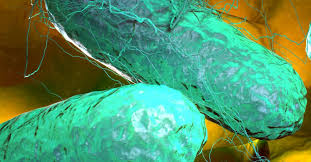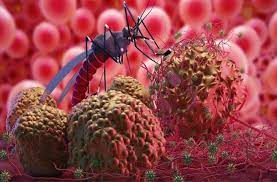Content of the Article
Schistosomiasis diseaseanother name forBilhariasis”. A parasitic disease caused by a parasitic flatworm of the genus Schistosoma.
schistosomiasisIt can cause bladder cancer, pain when urinating, and disorders related to both urinary and genital organs.

Studies estimate that around 230 million people worldwide suffer from this disease, with around 700 million at risk.
schistosomiasis It is considered the second most serious parasitic infection in history after malaria. It is endemic in about 74 countries, especially in Africa and the Middle East, that is, it is a disease specific to those regions.
How is schistosomiasis transmitted?
schistosomiasisis a parasitic disease transmitted to humans from freshwater snails. Snails infect water bodies with parasites containing secretions and then enter human skin that comes into contact with the infected water.
schistosomiasis What are the reasons?
There are about three main types of schistosomes that affect humans:
- S. haematobium
- Schistosoma japonicum
- S. mansoni.
These parasites are passed from freshwater snails to humans.
Freshwater snails leave larval forms of parasites in the body of water. When human skin comes into contact with these larvae, the larvae penetrate human skin and enter their bodies.
Transmission from person to person occurs when they pass stool or urine into fresh water.
In humans, it takes about 10-12 weeks for the larvae to mature and reproduce. Mature worms live near the urogenital organs and lay eggs in the same place.
While most of the eggs are excreted from the human body through faeces or urine, half of them are trapped inside the urogenital organs, causing tissue inflammation and thus various ailments related to the bladder, urethra, uterus, cervix, vagina and lower ureters.

schistosomiasis What are the symptoms?
Schistosomiasis symptomssome of them are:
- Abdominal pain
- blood in stool
- Diarrhea
- genital lesions
- fever and chills
- pain during sexual intercourse
- Cough
- Inflammation of the seminal vesicles in men
- Inflammation of the prostate gland
- Decreased mental abilities in children
- Muscle pain
- Debris
- Weakness
Symptoms do not appear immediately. It develops within a month or two of contact, as the larvae take time to mature and reproduce.
schistosomiasis Who is at risk for
Risk factors for schistosomiasisSome of them are:
- Living in areas where hygienic conditions are inadequate and safe drinking water is not available.
- Working in agriculture and fishing related jobs
- Washing clothes in infected water bodies, i.e. in water where sweet snail larvae are present
- Living near freshwater rivers or lakes.
- a person's immune system is weak
- Traveling to areas where the infection is common.

Schistosomiasis disease What are the complications?
Schistosomiasis diseaseIn the advanced stage of the disease, some complications, namely side effects related to the disease, may occur:
- Liver enlargement
- spleen enlargement
- Hypertension
- Fluid accumulation in the peritoneal cavity (the space in the stomach containing the intestines and liver).
- Kidney damage.
- Fibrosis of the ureter.
- bladder cancer
- chronic vaginal bleeding
- Infertility
- Anemia
- Seizures
- Paralysis
- Ectopic pregnancy, i.e. the development of the fertilized egg outside of the uterus
- Death
How is the diagnosis of schistosomiasis made?
Schistosomiasis diseaseDiagnostic methods are as follows:
Urinalysis or stool test: A urine and stool test is done to identify parasite eggs in urine and feces.
Serology test: It is made for travelers with or showing symptoms.
Complete blood count: This test anemia and helps identify underlying conditions such as malnutrition.
X-ray: It, schistosomiasis Helps to identify lung fibrosis due to It happens.
Ultrasound: It is done to see any damage to the liver, kidneys or internal urogenital organs.

How is schistosomiasis treated?
Treatment of schistosomiasisvaries from person to person, depending on the severity of the condition. schistosomiasis Treatment methods are as follows:
Antihelminthic drugs: They are drugs such as praziquantel. The drug is administered in various doses to different patients. It helps treat lower reproductive system abnormalities in women.
Other drugs: Medications may be given to treat mild to moderate symptoms such as vomiting, abdominal pain, or inflammation.
- People who will travel to regions where the disease is common should take some precautions against this disease. E.g; Avoid walking and swimming in areas with fresh water. For safe water. If you can't find bottled water, make sure to boil your water and drink it that way.










